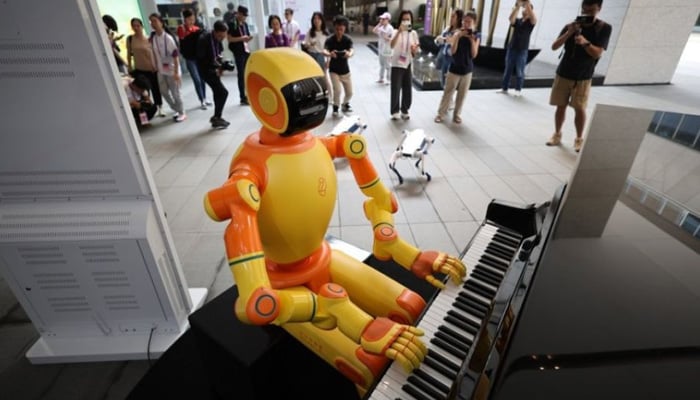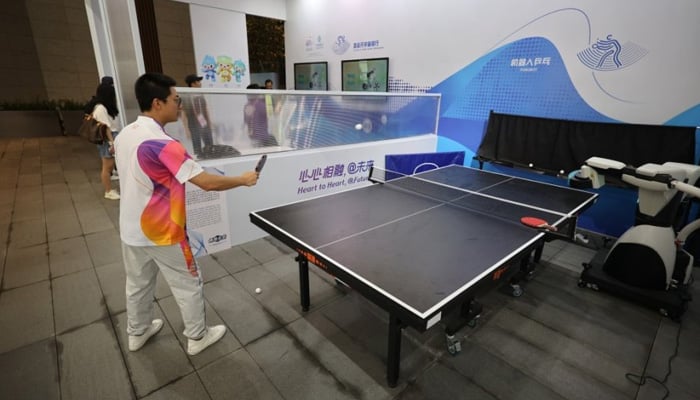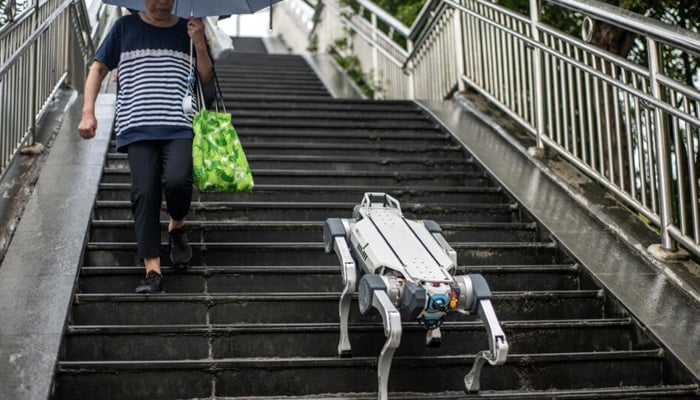Robots, machines dominate China's Asian Games
Even venues were built with the help of construction robots
At the Asian Games in China, machines dominate the scene, from autonomous bug eliminators to android pianists and driverless ice-cream vans.
After a one-year postponement due to COVID-19, the games kick off this Saturday, welcoming around 12,000 athletes along with numerous journalists, technical staff, and spectators to Hangzhou.
As an epicenter of China's tech industry, Hangzhou boasts a plethora of robots and incredible gadgets ready to assist, entertain, and enforce regulations for attendees.
For instance, an automated mosquito trapper roams the expansive Games Village, attracting and zapping mosquitoes by simulating human body temperature and breath.
Robot "dogs" that can run, jump and flip over patrol power-supply facilities. Smaller versions dance while a bright-yellow android plays the piano.
Driverless minibuses are set to shuttle visitors through the nearby city of Shaoxing, where baseball and softball venues are located.
Athletes can put their reflexes to the test against a table-tennis playing "Pongbot".
At the massive media centre, a blushing plastic-and-metal receptionist with a number pad and card slots built into its torso greets customers at a makeshift bank.
Even venues were built with the help of construction robots which organisers say are "very cute, with unique skills".
Summing up how keen China is to push the theme at the Games, the mascots are three humanoid robots — Congcong, Lianlian and Chenchen, whose smiling faces adorn massive signs across Hangzhou and other nearby host cities.
Dog meets 'dog'
Hangzhou, a city of 12 million people in China's east, has built up a reputation as a home for tech startups.
That includes a thriving robotics sector eager to close the gap on industry-leading rivals in countries such as the United States and Japan.
At a business park, staff from DEEP Robotics put some of their most advanced models through their paces, commanding one four-legged bot to walk through construction rubble and sending another up a nearby pedestrian bridge slick with rain.
At one point, a real dog turns up and sniffs its robotic equivalent curiously.
Elsewhere, office workers pick up lunch from vending machines that can steam the food and, according to maker Kuaie Fresh, check the temperature so the meal is just right.
The machine also collects data on customer preferences.
In some countries, that would give rise to concerns about where their personal information is going and how it will be used.
But at least one customer was impressed.
"Its cooking skills are better than most people who don´t know how to cook," said Hu, 29.
A global race to push the limits of artificial intelligence brought AI-enabled humanoid robots to a UN summit in July, where they claimed they could eventually run society better than humans.
And industrial robots have raised fears around the world that machines could make millions of jobs obsolete.
"I wouldn't say that robots will replace humans, but rather they are a tool, and they will help humans," Qian Xiaoyu, a DEEP Robotics executive, told AFP.
A temperature-taking robot had been lined up to take people's temperatures and report if they showed signs of a fever.
It can also remind visitors to wear a mask.
— Additional input by AFP
-
Seahawks Super Bowl victory parade 2026: Schedule, route & Seattle celebration plans
-
Super Bowl 2026 live: Seahawks defeat Patriots 29-13 to win Super Bowl LX
-
Stefon Diggs family explained: How many children the Patriots star has and with whom
-
Where is Super Bowl 2026 taking place? Everything to know about the NFL showdown
-
Winter Olympics 2026: Lindsey Vonn’s Olympic comeback ends in devastating downhill crash
-
Winter Olympics 2026: When & where to watch the iconic Ice dance ?
-
Winter Olympics 2026: Milan protestors rally against the Games as environmentally, economically ‘unsustainable’
-
How long is the Super Bowl? Average game time and halftime show explained














